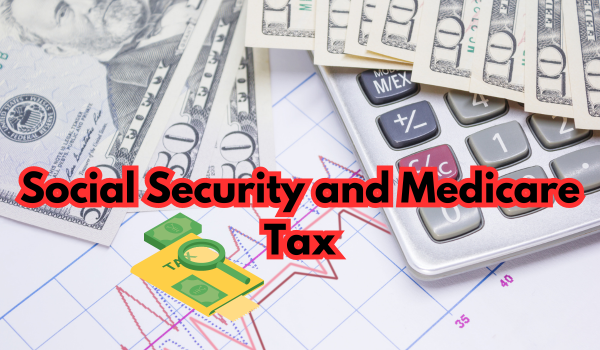In this article, you will get to know about the Social Security and Medicare Tax: How Do I Pay Medicare Taxes and Who is Exempt from it? In the US, working employees have to pay a certain sum of their monthly payments into Social Security and Medicare taxes.
Social Security and Medicare Tax
Every employee has to fund their specific sum of the amount into these taxes. After the age of retirement, the contributor will receive hospital insurance coverage and disability income. Continue browsing this article to get more crucial information related to Social Security and Medicare Tax, how to pay, benefits, and more.
The US federal government has made a Federal Insurance Contribution Act in which employees are required to make a contribution to their earnings. The individual is required to make 12.4 per cent of their earnings contribution, which both the employer and the employee can equally contribute.
|
Important Links |
This contribution funding will help individuals with old age pensions, survivors, hospital insurance, and disability benefits. The Social Security and Medicare taxes are the employment taxes. These taxes are applied regardless of the citizenship or residency status of the employees.
What is Social Security and Medicare Tax?
Social Security is the security tax that is levied on employers and workers to fund the security program. The fund is collected in the form of payroll and is mandatory by SECA. This is the payment that will be distributed for retirement, disability, or other survivor benefits. Millions of beneficiaries receive the benefits under the OASDI program.

Medicare tax is also the employment tax that is funded for the individual Medicare program. This is like the Social Security tax in that the employee is required to make a contribution of 2.9 per cent on the earnings. Every employee is required to make a contribution to both the program to receive the benefits after a specific period of time.
How Do I Pay Medicare Taxes?
The employees are not required to pay any Medicare taxes. At the time of receiving the wages, the employer will provide you with the deducted taxes from each payment. Nearly every employer and worker is required to make a contribution to both plans.
The deducted amount varies according to the Government’s provided rates. The Federal Government sets the contribution rates according to each year. In that, both the employer and the employee have to make an equal contribution, as Medicare taxes are set at 2.9 per cent. The employer and employee have to contribute 1.45 per cent each.
Benefits of Social Security and Medicare Tax
The employer and the employees sever certain benefits after contributing to both programs. The benefits include:
- After the age of 65, the individual will receive pension benefits according to their contribution.
- With this taxation, the individual and their family will receive medical facilities.
- The beneficiaries will receive the survivor’s benefits.
- The disabled individual will receive additional benefits related to their disability.
These are some of the benefits to the employee who makes their contribution while paying out the taxes. The individual who has not made their contribution in both these taxes will not receive any financial or medical benefits through the Government.
|
Important Links |
Who is Exempt from Social Security and Medicare Tax?
Almost all the employees are required to make a contribution to both these programs. This contribution creates important sources of income during retirement. But, there are some exempt which include:
- The exemption applies to foreign academics or researchers if they are non-immigrants or residents.
- Self employer workers who make less than 400 USD yearly are not required to pay social security
- Temporary student
- Qualifying for a religious exemption
- Foreign Government employees
These are some of the exempt criteria to whom these taxations are not applicable. The individual is required to be a US resident and work under the employer. Individuals will receive the benefits if they make up the contribution. The foreign residents working in the US will not be able to receive the benefits as they are required to have US residency to be US citizens.